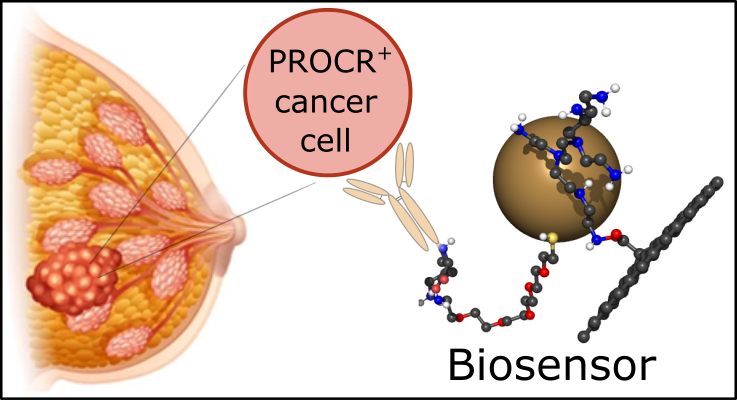Students focus on detection of breast cancer markers
Five doctoral students from CATRIN will focus on development of a sensitive and easy-to-use graphene-based nanomaterial that could serve as a biosensor for detecting breast cancer markers. This research will be funded by Palacký University as part of a student grant worth 1.9 million Czech crowns.
The centre of their attention will be the triple-negative breast cancer (TNBC), which accounts for approximately 15 to 20 percent of all breast cancer cases. It is associated with a high rate of relapse and is currently the most difficult to treat. The absence of known markers such as the estrogen receptor, progesterone receptor, and HER-2 receptor distinguishes this type from others.
The benefit of our research stems from the focus on primarily detecting triple-negative breast cancer by identifying its recently discovered marker, the protein C receptor. Its rapid and sensitive detection could be an important milestone in the diagnosis of this disease.

“The task of this five-member team will be to prepare and characterize materials derived from fluorographene, which will be further surface-modified with appropriate molecules. The plan is to use the resulting materials as biosensors to detect the marker by various analytical methods ranging from optical to electrochemical,” explained the Principal Investigator Jan Belza.
The benefit of the grant, by the end of which the team have committed themselves to writing a journal article, will be not only the prepared biosensors but also new knowledge of the protein C receptor, which is still relatively unexplored. The young researchers succeeded in stiff competition against about 140 candidates.
Other members of the research team are Klára Gajdošová, Jana Dzíbelová, Vítězslav Hrubý and Ivan Dědek. The team will be supervised by Kateřina Poláková, Petr Jakubec and Václav Ranc.
The CATRIN doctoral students also succeeded in another two projects. Other successful applicants included Nikola Kořínková with Alexie Techer and Dominik Kusý.


